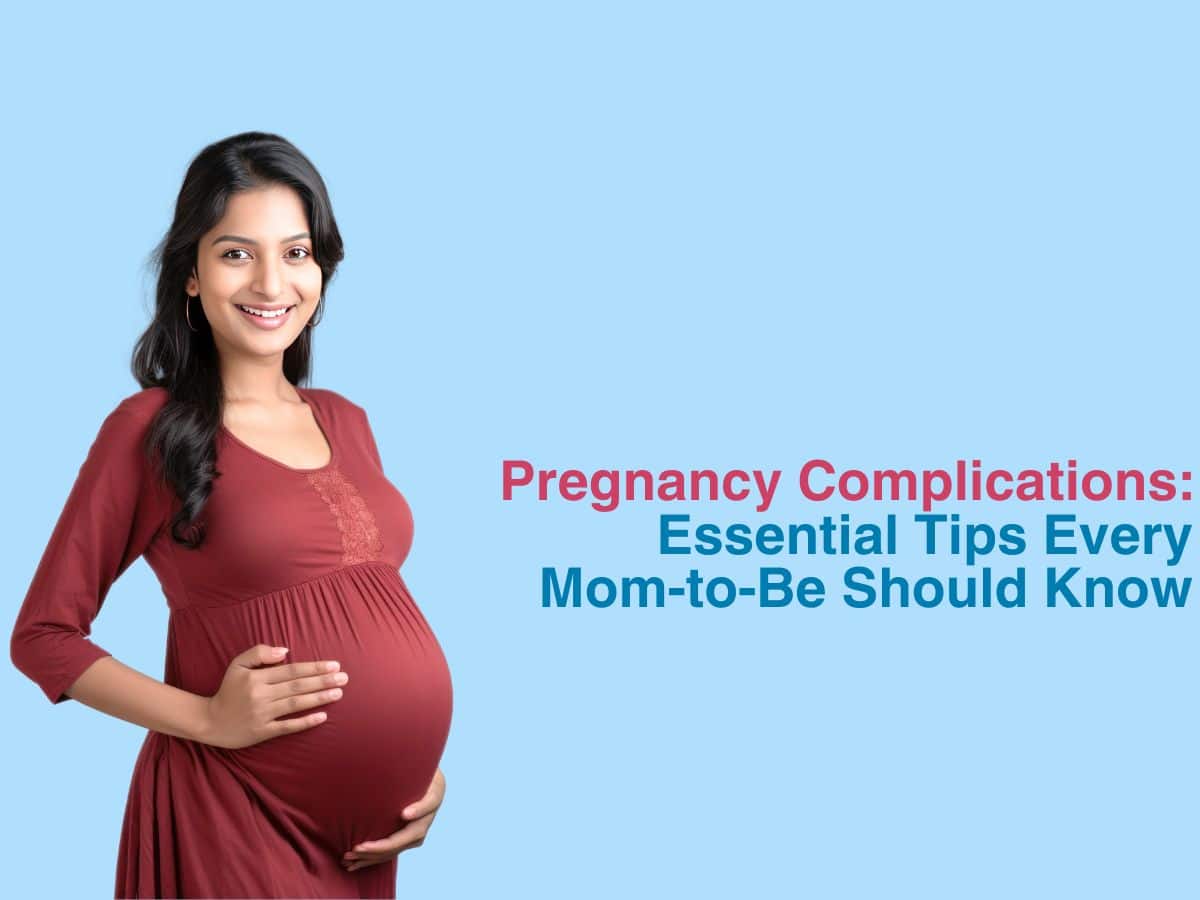
Pregnancy Complications: Essential Tips Every Mom-to-Be Should Know
Pregnancy is a journey of many lows and a few ups- but it is totally worth it in many ways. Many mums-to-be dream of holding their baby in their arms after a few months of super hard work. Even during pregnancy, many women deal with other issues that crop up due to hormonal fluctuations or anatomical and physical changes. Some of the most common problems that occur include high blood pressure, gestational diabetes, preeclampsia, preterm labour, a miscarriage, ectopic pregnancy, frequent UTIs, foetal issues, clotting disorders, Rh differences, severe iron deficiency and anaemia or even mood disorders like anxiety and depression. This list isn’t exhaustive, but pretty much covers most of what could happen. You need to know what these are, so when you notice worrisome symptoms, you know it is time to get help.
Common Pregnancy Complications And How To Manage Them
Many women these days suffer from issues during pregnancy – and this can be dangerous for them and the foetus too. When signs like high blood pressure, gestational diabetes, being pregnant with multiples, preeclampsia etc. are involved, the pregnancy is termed ‘high risk’. Let us look at some common complications in detail, below-
- Hypertension- Also called gestational hypertension, as it goes away once the mother has given birth, this condition places more stress on the heart and the foetus in turn. The foetus may not receive enough nutrients and could have slower growth, while simultaneously increasing chances of the mother having preterm labour or preeclampsia.
- Gestational diabetes is another condition that commonly affects women due to the hormonal changes that accompany pregnancy. It can influence insulin sensitivity, but this condition goes away after childbirth. Again, some risks include preeclampsia and hypertension, if it is not controlled.
- Many women report suffering from UTIs more often during pregnancy as their immunity is not as great as before. Some pathogenic agents may pass from the mother to the child during childbirth or even in pregnancy. If not treated, it can cause miscarriages, preterm labour, congenital issues or even newborn death in extreme cases. It can also complicate things for the mother herself.
- Preeclampsia– very high blood pressure is observed, but the exact cause is unknown. It is more prominent in older women who get pregnant, are carrying multiples, are obese or when it is the first pregnancy, among other scenarios.
- Preterm labour- when the infant is born before 3 weeks of gestational age, the baby may suffer from health issues later in life. Treatment with progesterone is helpful in this case.
- Miscarriage– When there is cramping or bleeding before week 20, it is a miscarriage. It can be due to some physical trauma, stress or a number of reasons.
- Stillbirth– If there is loss of the pregnancy AFTER week 20, it is termed a ‘stillbirth’. This may be due to placental issues, health issues, infections etc.
- Depression or anxiety– becoming a mother means having to worry a lot. But for some women, it can be too much to deal with, leading to full blown panic attacks. In other cases, the huge hormonal shifts can leave you feeling depressed- termed the ‘baby blues’. Getting timely therapy will help combat these feelings of inadequacy or anxiety.
- You may have too much or too little of amniotic fluid in the uterus- both of which can be harmful for the baby.
How To Identify Early Signs Of Pregnancy Complications
If you notice symptoms like severe headaches, swelling in your legs, have very bad abdominal and pelvic pain, or if you are bleeding- then you need to get help immediately. It may be due to hypertension, a miscarriage, anaemia, or if you notice a sharp change in your blood glucose values, it could be gestational diabetes. A high fever is also worrisome. With gestational diabetes, you may get really hungry, super thirsty and pee very often. You will be asked to tweak your diet and get some exercise. The same measures can be employed to deal with hypertension too. Also, if you notice lesser than usual foetal movements, you should get help.
Ways To Reduce The Risk Of Preterm Labor Naturally
Getting stressed can influence both you as the mother and the foetus in the womb. For some women, since the risk is higher than usual, a cervical cerclage may be recommended (stitches in the cervix), followed by complete bed rest for a few months. If you have any conditions like diabetes or hypertension, then you need to actively manage them. Try not to gain too much weight every month, and stay as active as possible. Go for walks, do some yoga or stretching and follow any routine that is safe and recommended by your doctor.
Conclusion
Completing pregnancy can be a nerve wracking journey for many mums-to-be, but fear not. You will be fine and get through this too. The main thing here is to catch symptoms or subtle signs before time, so that they can be dealt with immediately, in the most appropriate manner. Your doctor will have a plan once they understand what is going on with you. Pregnancy related complications can be scary to hear about and even scarier when you have to deal with them. Stop freaking out, concentrate on getting through one day after another, don’t overthink, eat, sleep and exercise well and surround yourself with good vibes as much as possible.







